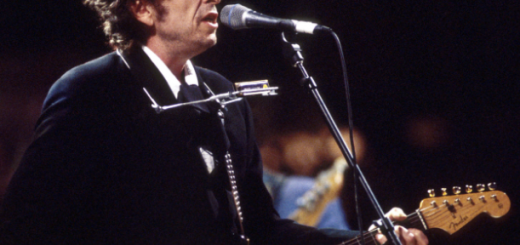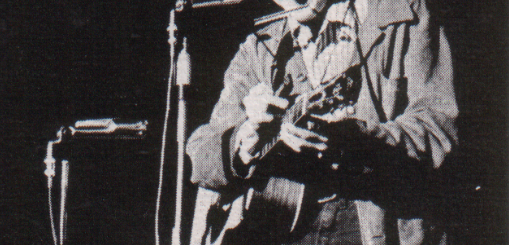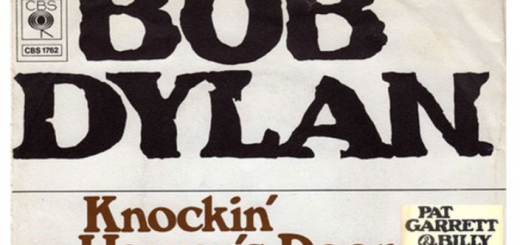Oxford Town by Bob Dylan Lyrics Meaning – Unraveling the Ballad of Southern Disquiet
Lyrics
Everybody’s got their heads bowed down
The sun don’t shine above the ground
Ain’t a-goin’ down to Oxford Town
He went down to Oxford Town
Guns and clubs followed him down
All because his face was brown
Better get away from Oxford Town
Oxford Town around the bend
Come to the door, he couldn’t get in
All because of the color of his skin
What do you think about that, my friend?
Me and my gal, my gal’s son
We got met with a tear gas bomb
I don’t even know why we come
Goin’ back where we come from
Oxford Town in the afternoon
Everybody singin’ a sorrowful tune
Two men died ‘neath the Mississippi moon
Somebody better investigate soon
In the tapestry of American folk music, few threads are as boldly colored as the songs of Bob Dylan. A master of lyrical depth and societal commentary, Dylan’s ‘Oxford Town’ stands as a powerful testament to a time of tumult and transformation. This short but impactful song encapsulates the racial tensions and civil rights struggles of the early 1960s in a manner that is both artistically subtle and emotionally potent.
Behind the seemingly simple verses and the folksy rhythm of ‘Oxford Town’ lie layers of meaning and historical context. While the tune hums along with the deceptive tranquility of a lullaby, the content wrenches the listener back to a darker era of American history where the battle for equality was fought in the streets of towns like Oxford, Mississippi.
Breaking Down the Ballad: A Tale of Racial Strife
Dylan’s narrative in ‘Oxford Town’ is a dramatization of the events surrounding the 1962 enrollment of James Meredith into the University of Mississippi, an action that heralded violent riots. The succinct storytelling captures the chilling atmosphere of a community engrossed in racial discrimination. It paints a picture of a place where even the sun refuses to shine, symbolizing a society overshadowed by pervasive inequality.
The recurring theme of bowed heads is potent with double meanings—it invokes both the somber attitude of a saddened town and the subservience enforced by a dominant, oppressive culture. While many bowed in acquiescence or defeat, others did so in prayer or reflection, hoping for a day when the sun would indeed shine on them, metaphorically speaking.
The Lurking Shadow: Dissecting the Song’s Hidden Meaning
‘Oxford Town,’ at its heart, is a cleverly veiled protest song. It showcases Dylan’s skill in crafting verses that deliver a punch without resorting to overtly radical language. The brown-faced man and his unwelcome reception—met with guns and clubs—serves as a powerful allegory for the African American experience during the early stages of the Civil Rights Movement. Dylan doesn’t have to name James Meredith to draw the parallel; the story resonates with an unsettling familiarity.
Each verse peels back a layer of the town’s genteel facade, to reveal the ingrained prejudice lurking beneath. Dylan’s selection of the idyllic town name, its musical repetition, and the dark events that unfold all contribute to the song’s ability to condense a broad social issue into a concise, accessible narrative. It forces the listener to confront the disturbing realities of racial violence and the systemic failures that allowed it to fester.
A Personal Plight: The Universal Through the Individual
Dylan grounds the political in the personal by weaving in a tale of a family—’me and my gal, my gal’s son’—caught in the crossfire of the struggle. The use of tear gas against them, historically a tool for crowd control, serves as a stark illustration of the physical and emotional trauma inflicted upon ordinary people. Dylan offers up a snapshot of their pain to show that the problem of racism is not only institutional but also deeply human and personal.
The inclusion of a family unit exposes the disruption of everyday life due to racial conflict. It is a look at how these larger societal issues penetrate the most basic human relationships, demonstrating that the battle for civil rights was not merely about abstract concepts like justice and equality but also about safeguarding the well-being of families and communities.
The Harrowing Echo: Most Memorable Lines
Arguably the most haunting lines of ‘Oxford Town’ are those that speak of the two men who died ‘neath the Mississippi moon.’ These words evoke the dark history of nighttime lynchings in the south and serve as a grim reminder of the ultimate price paid by many in their fight for civil rights. The call for investigation ‘somebody better investigate soon’ hints at the often slow and reluctant justice system, which at the time frequently failed to hold perpetrators of racial violence accountable.
In its essence, this line epitomizes the cry for recognition; a plea for the nation — or perhaps the world — to witness the deep-seated wrongs and to take action. Dylan’s skillful phrasing leaves these lines echoing in the listener’s mind, a somber melody that carries the weight of a history haunted by bloodshed.
The Enduring Relevance: Why ‘Oxford Town’ Still Matters
Decades after its release, ‘Oxford Town’ continues to resonate with contemporary audiences, not as a mere relic of the past, but as a living reminder of the ongoing struggle for equality. Dylan’s folk tune captures a historical snapshot, yes, but the themes of injustice, resistance, and the quest for social change are universal and enduring.
In a time when civil rights remain a vital issue around the globe, Dylan’s song endures as an anthem that transcends time and place. It serves as both a memorial to past struggles and a lamp for the path ahead, proving that great music doesn’t just capture the zeitgeist—it speaks to the eternal human condition.








